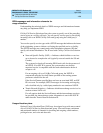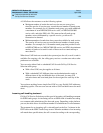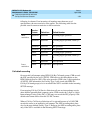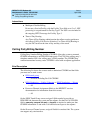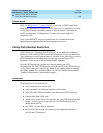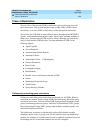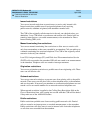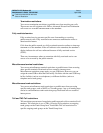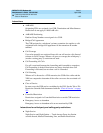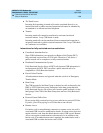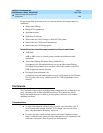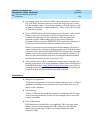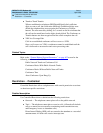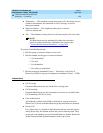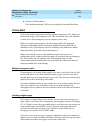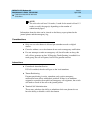
DEFINITY ECS Release 8.2
Administrator’s Guide
555-233-506
Issue 1
April 2000
Features and technical reference
1307Class of Restriction
20
Interactions
■ AAR/ARS
Originating FRLs are assigned via a COR. Termination and Miscellaneous
Restrictions do not apply to ARS/AAR calls.
■ AAR/ARS Partitioning
Partition Group Numbers are assigned via a COR.
■ Bridged Call Appearance
The COR assigned to a telephone’s primary extension also applies to calls
originated from a bridged call appearance of that extension on another
terminal.
■ Call Coverage
Users who normally are restricted from calls can still receive calls directed
to them via Call Coverage. When a call goes to coverage, the called party’s
(not the covering party’s) restrictions are used.
■ Call Forwarding All Calls
If a call is restricted between the forwarding and forwarded-to extensions,
Call Forwarding is denied. Restrictions are always checked when Call
Forwarding is activated, but not when a call is forwarded.
■ Call Vectoring
When a call is directed to a VDN extension, the COR of the caller and the
VDN are compared to determine if the caller can access the associated call
vector.
■ Class of Service
In some cases, the COR can be overridden by the COS. See the Trk-to-Trk
Restriction Override field documented with the ‘‘
Class of Service’’ on page
532.
■ Controlled Restriction
Restrictions assigned via Controlled Restriction override COR restriction.
■ Emergency Access to Attendant
Emergency Access to Attendant calls are not restricted by COR.
Interactions for called-party and calling-party restrictions
■ Night Service
Night Service and Night Station — Trunk Answer From Any Station
override Inward, Manual Terminating Line, and Public Restrictions.



